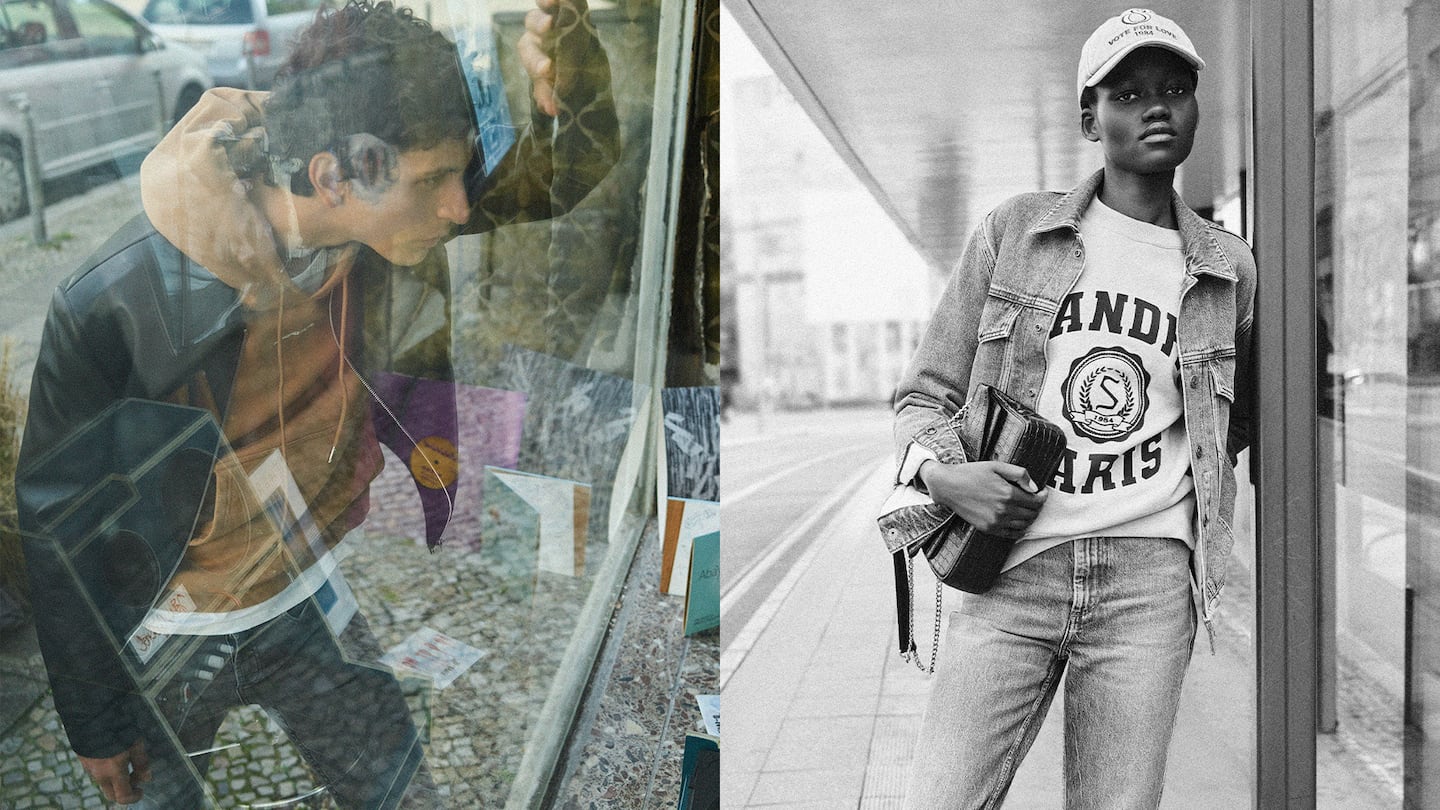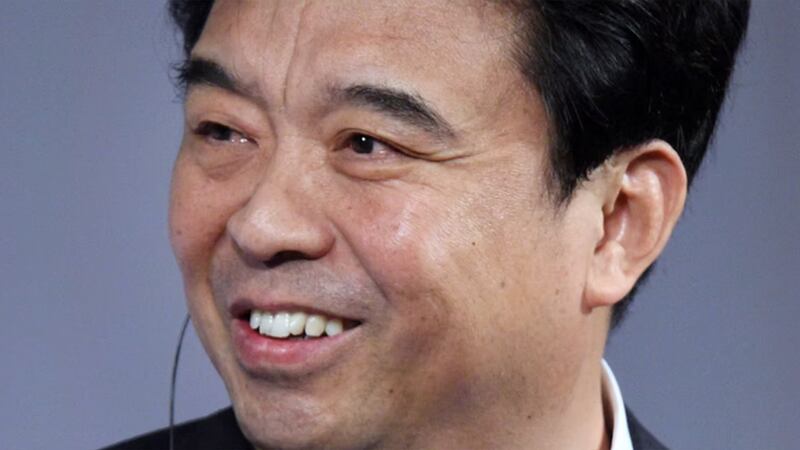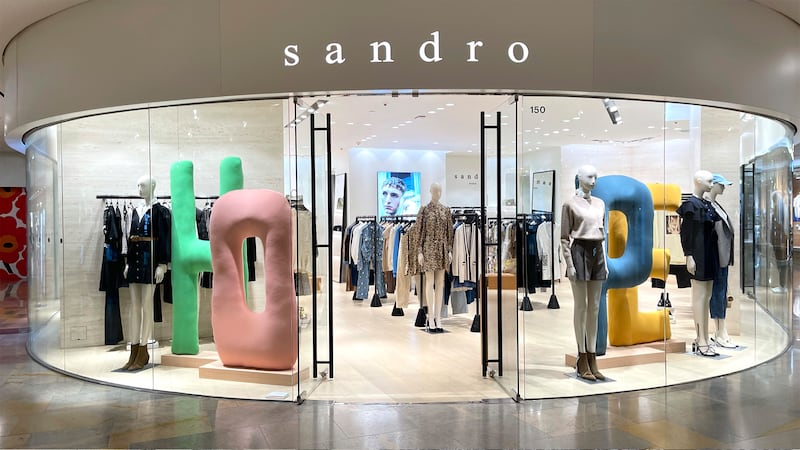
The Business of Fashion
Agenda-setting intelligence, analysis and advice for the global fashion community.

Agenda-setting intelligence, analysis and advice for the global fashion community.

The unravelling of China’s Ruyi Group — the now-distressed textiles giant formerly known as Shandong Ruyi which boasted ambitions to become the “LVMH of China” as recently as 2018 — continues to disrupt the firm’s international acquisitions, with French contemporary giant Sandro, Maje, Claudie Pierlot (SMCP) now in the spotlight.
After Ruyi’s British trench maker Aquascutum ceased trading in the UK and its menswear unit including Gieves & Hawkes and Cerruti went into liquidation, investors are set to vote Friday on whether to remove Ruyi’s representatives from the board of SMCP, which the group acquired in 2016 for around €1.3 billion ($1.5 billion).
The vote at SMCP has been ordered by a French judge at the request of Glas, a consortium of Ruyi’s former lenders who seized 29 percent of the company’s shares in October after one of the group’s holding companies, European TopSoho, failed to make payments on €250 million in exchangeable bonds.
Ruyi has since transferred another 16 percent of SMCP’s shares to a firm in the British Virgin Islands controlled by Chenran Qiu, the daughter of the group’s chairman, Yafu, selling the block valued at €125 million for just one euro. The transaction, which Ruyi did not disclose at the time, outraged the group’s lenders.
ADVERTISEMENT
Multiple representatives for Ruyi and European TopSoho did not respond to requests for comment.
Glas is now proposing that SMCP’s shareholders remove the five representatives of Ruyi from its board, including chairman Qiu, and to replace them with four independent directors. In a hearing Monday, a judge will consider a request by Ruyi’s holding company European TopSoho that the shareholder meeting be postponed.
Ruyi’s unravelling
The disintegration of SMCP’s marriage to one of China’s largest textile manufacturers is one few would have seen coming a few years ago.
Back in 2016, Ruyi was in the middle of an acquisition spree that saw it announce more than $4 billion in deals as it raced to move up fashion’s value chain, adding well-known international brands to a portfolio formerly focused on manufacturing. Analysts and investors bet on the tie-up of fast-growing “accessible luxury” names like Sandro and Maje with a well-established player in China (fashion’s growth engine) to turbo-charge sales.
SMCP’s early days under Ruyi went smoothly enough: in 2017, sales grew by 17 percent and the company listed on the Paris Bourse at a valuation of €2.2 billion. In 2018, the group crossed the bar of €1 billion in annual sales.
But signs soon emerged that Ruyi had overextended itself in its international buying spree, and was losing support from its backers. In 2019, deals to acquire Swiss shoemaker Bally and Israeli clothing manufacturer Bagir stalled, with the latter target citing problems securing the approval of the Chinese government. The $600 million deal for Bally never closed.

Ruyi’s shareholding is a dense web of inter-connected firms, often linked to Chinese local governments, which supplied much of the funding for the group’s acquisitions. China has since cracked down on high levels of local government debt, and is leaving out to dry companies like Ruyi that used the easy money to finance risky bets.
ADVERTISEMENT
While some Chinese firms built thriving businesses partly with government support, Ruyi’s bets were often on loss-making units like Savile Row tailor Gieves & Hawkes, which it failed to turn around.
In June 2020, one of the company’s most important backers, state-owned Jining City Urban Construction Investment Co., called off a deal to inject $495 million in the company.
“Ruyi over-enjoyed the system,” said Patrice Nordey, managing partner at consultancy Fabernovel in Shanghai. By not stepping in to assist Ruyi, the relevant authorities in China are likely “using this case to make a signal to the whole market,” he said.
Other Chinese groups that had been snapping up European brands, like Lanvin-and Caruso-owner Fosun Fashion Group (which recently rebranded as Lanvin Group) or Carven-owner Icicle, have since slowed their pace of international deals.
SMCP’s recovery
Since 2018, the value of SMCP’s shares have slid to less than one-third the value of their peak as the pandemic followed rising concerns over its controlling shareholder’s financial stability and difficulty maintaining like-for-like growth.
Chief executive Daniel Lalonde left SMCP in August after eight years, replaced by Isabelle Guichot, a former Kering executive who had been running SMCP’s second-biggest brand Maje. But despite turbulence at the top, SMCP has shown signs of a rebound from the pandemic well underway.
The group’s historical focus on the heavily-impacted ready-to-wear category has put it in a difficult spot since the coronavirus hit. And lengthy lockdowns, which were particularly strict in its home market of France, have increased the pressure for SMCP to reduce its dependence on opening new brick-and-mortar locations to drive growth.
ADVERTISEMENT

SMCP has slowed its pace of new store openings and is even cutting some doors in France, while committing more resources to e-commerce and communications. The group has doubled its marketing budget, from 2 to 4 percent of sales. Maje launched its first collaboration (with athleisure brand Varley) in a recent bid to test the waters of a new category and generate buzz.
Sales recovered to 2019′s pre-pandemic levels during the third quarter last year — a slower rebound than for top luxury groups like Hermès and LVMH or fast-fashion pure players like Inditex, but not far behind other mid-market apparel-makers like Hugo Boss.
”They’ve seen a nice recovery from a really challenging first half,” Jefferies analyst Kathryn Parker said. “The most important thing for them now is to rebalance the growth, from new space to a combination of new space and like-for-likes.”
Takeover ahead?
The company will need to resolve its governance dispute as it charts a way forward in the post-pandemic fashion market.
Glas (the consortium of lenders to SMCP’s parent company Ruyi) is proposing a cast of independent board members to restaff the group’s board, including Christopher Zanardi-Landi, a former executive of LVMH’s Louis Vuitton and Thomas Pink units, former Elite Modelling chief executive Christophe Chenut and Credit Suisse executive Natalia Nicolaidis.
Through its outstanding bonds, Glas has claims on more of Ruyi’s shares in SMCP, but has yet to seize them, most likely to avoid crossing a French regulatory threshold that could trigger an obligation to offer a buyout to its fellow shareholders. With just 25 percent of votes at present, the consortium will need the support of smaller shareholders including Sandro and Maje’s founding family, individual investors and funds to succeed in its bid to oust Ruyi’s representatives.
Still, financial analysts and sources close to the company said they expect Glas’s resolution to pass, as much of SMCP’s free float is held by funds specialised in distressed situations and who will want to pave the way for a sale.
Jefferies has had a “buy” rating on the stock since October, reflecting “confidence that there would be a change in shareholding, with Ruyi likely exiting or a becoming minority holder,” Parker said.
Glas has said it does not plan to hold its stake. One of its member funds, including BlackRock, Carlyle, Anchorage or Boussard & Gavaudan, could decide to buy out the others and take the lead on managing SMCP’s next chapter. Or they could sell to a competing private equity firm. Glas did not respond to requests for comment.
The group could also find a strategic buyer. In that scenario, US accessible luxury firms like Michael Kors parent Capri Holdings, which is on the hunt for acquisitions but struggling to find more top luxury assets like Versace, could be interested, Parker said.
After a brief lull in activity, Chinese investors could help drive next year’s M&A frenzy. But if past performance is anything to go by, there are reasons to exercise caution before signing on the dotted line.
The Chinese firm that owns Lanvin, Sergio Rossi, St. John Knits and Wolford could be eyeing an IPO after recently rebranding as Lanvin Group.
The Chinese company reveals plans to target affordable luxury with LVMH as its dream competitor.
French fashion group SMCP, the owner of the Sandro and Maje labels, said on Wednesday its 2020 core profit fell less than feared, cushioned by a rise

Robert Williams is Luxury Editor at the Business of Fashion. He is based in Paris and drives BoF’s coverage of the dynamic luxury fashion sector.
After preserving his fashion empire’s independence for decades, the 89 year-old designer is taking a more open stance to M&A.
The sharp fall in the yen, combined with a number of premium brands not adjusting their prices to reflect the change, has created a rare opportunity to grab luxe goods at a discount.
Fashion’s presence at Milan Design Week grew even bigger this year. Savvy activations by brands including Hermès, Gucci, Bottega Veneta, Loewe and Prada showed how Salone has become a ‘critical petri dish for dalliances between design and fashion,’ Dan Thawley reports.
The Hood By Air co-founder’s ready-to-wear capsule for the Paris-based perfume and fashion house will be timed to coincide with the Met Gala in New York.